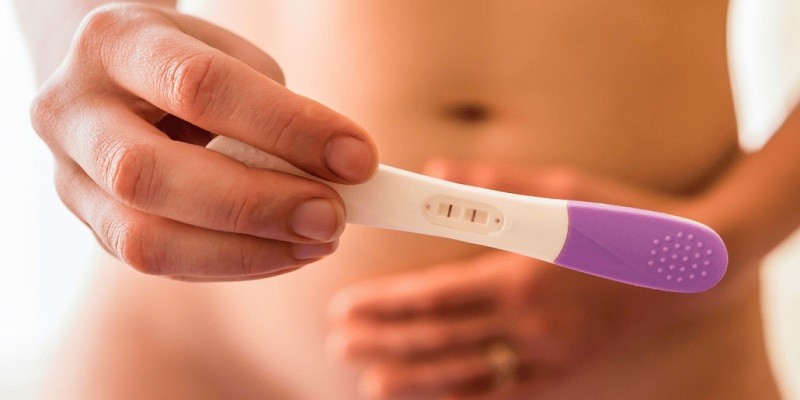Last Updated on April 20, 2023
Yes, it is possible to get pregnant again after a chemical pregnancy. A chemical pregnancy occurs when an egg is fertilized but does not implant in the uterus and does not develop into a viable fetus. Women who have experienced a chemical pregnancy are usually able to conceive again without any additional risk or complications.
However, if you experience two or more consecutive miscarriages, it would be wise to seek medical advice from your doctor before attempting conception again. It may also help to take prenatal vitamins with folic acid and make lifestyle changes such as eating healthy foods and getting regular exercise prior to trying for another baby. Additionally, reducing stress can improve your chances of conceiving successfully after experiencing a chemical pregnancy.
- Step 1: See a Doctor for Support
- After experiencing a chemical pregnancy, it is important to visit your doctor for an evaluation and discuss any potential underlying causes of the miscarriage
- During this appointment, you may be advised to wait a few months before trying to get pregnant again or given instructions on how to increase fertility if needed
- Step 2: Take Time To Heal Physically and Emotionally
- It is important to take time after chemical pregnancy to physically heal as well as emotionally process the experience
- This can be especially difficult when hoping for pregnancy, so make sure that you have support from family and friends during this time
- Step 3: Chart Your Menstrual Cycle If Needed
- Once ready to try conceiving again, charting your menstrual cycle will help identify peak fertile days in order conceive successfully within the month
- With some assistance from your doctor tracking ovulation cycles with basal body temperature measurements may also be recommended if necessary
- Step 4: Have Regular Sex around Ovulation Time
- Having regular sex (at least every other day) throughout the month is essential for increasing chances of conception as sperm can survive up 3-5 days inside female reproductive tract when optimal conditions are present
- However having intercourse 1-2 days prior and after ovulating increases success rate even more significantly due its close proximity timing with egg release from ovary
Implications of Chemical Pregnancies
Tips for Getting Pregnant After Chemical Pregnancy
If you’ve had a chemical pregnancy, the best way to increase your chances of getting pregnant again is to take care of yourself. Make sure you are eating a balanced diet and exercising regularly. Schedule regular check-ups with your doctor or midwife for pre-conception advice.
Also, consider tracking your ovulation cycle so that you can pinpoint when is the most likely time for you to conceive. Finally, make sure that both partners are stress free – try activities like yoga or meditation which can help reduce anxiety and improve fertility levels.

Credit: www.babycenter.com.au
Are You More Fertile After a Chemical Pregnancy?
A chemical pregnancy is a type of early pregnancy loss, and it occurs when a fertilized egg does not implant in the uterus. While it can be very distressing to experience a chemical pregnancy, there is some evidence that suggests that it may actually increase your fertility. Studies have shown that women who experience a chemical pregnancy are more likely to conceive again within the following year than those who do not.
This could be due to increased uterine receptivity after the body has gone through the process of preparing for an embryo implantation. While more research needs to be conducted on this topic, if you have had a chemical pregnancy, don’t despair — you may still have good chances of getting pregnant in the future!
How Likely is It to Get Pregnant After a Chemical Pregnancy?
A chemical pregnancy is an early miscarriage that occurs shortly after implantation. The likelihood of getting pregnant again following a chemical pregnancy depends on the cause of the miscarriage and other factors, such as age and health. It’s estimated that about 50-75% of women who have experienced a chemical pregnancy go on to have a successful future pregnancy.
Additionally, research suggests that having one or two prior miscarriages does not increase the risk for repeated miscarriages in subsequent pregnancies. If you are considering trying again after experiencing a chemical pregnancy, it’s important to speak with your doctor to ensure you’re doing everything possible to maximize your chances for success.
What Happens After a Chemical Pregnancy?
After a chemical pregnancy, it is important to take time to process the emotions that can come with this experience. In some cases, medical help may be needed if there are any physical symptoms that need treatment. It is also recommended to seek out support from family and friends during this difficult time as well as talk with a doctor or counselor about any questions or concerns you may have.
After a chemical pregnancy, it is normal for women to wait until their next period before trying again in order to give their body some rest and recover emotionally.
Conclusion
This blog post has provided helpful information about chemical pregnancies and the chance of getting pregnant after a chemical pregnancy. It is important to be aware that although it is possible to conceive again, there are still risks involved in any type of pregnancy. Therefore, if you have experienced a chemical pregnancy or are considering trying for another baby after one, it is best to consult with your doctor regarding any questions or concerns you may have.
With proper medical advice and care, couples can increase their chances of having a successful pregnancy.

